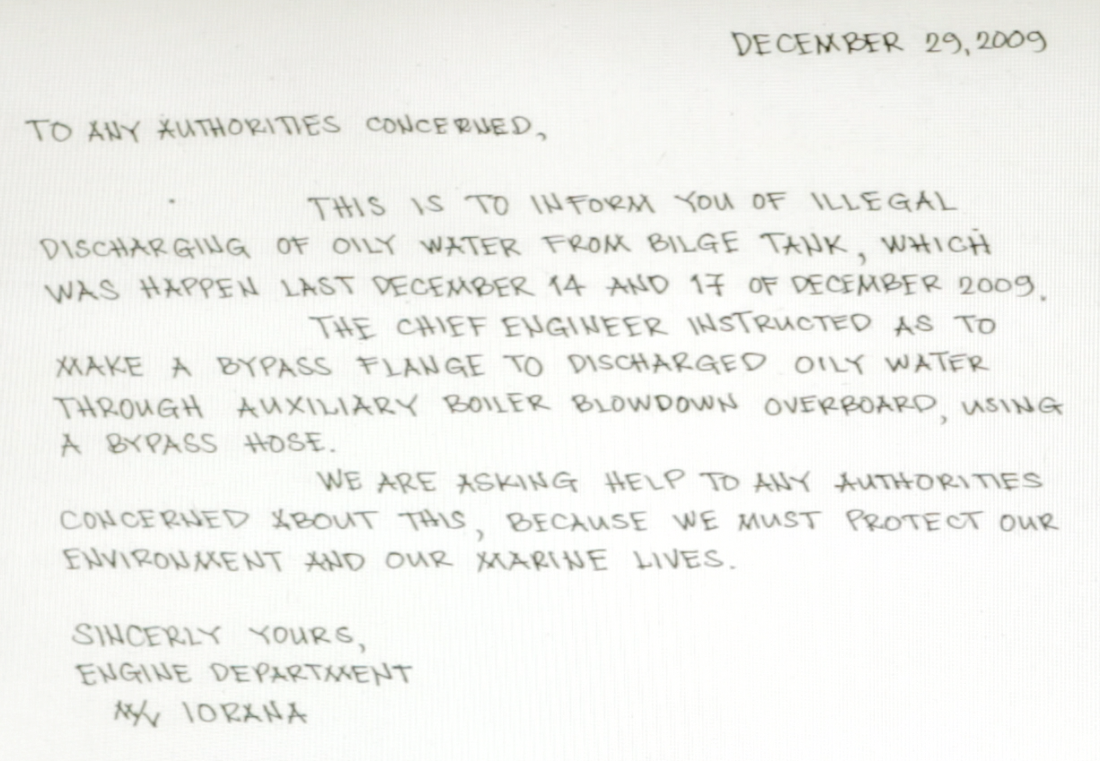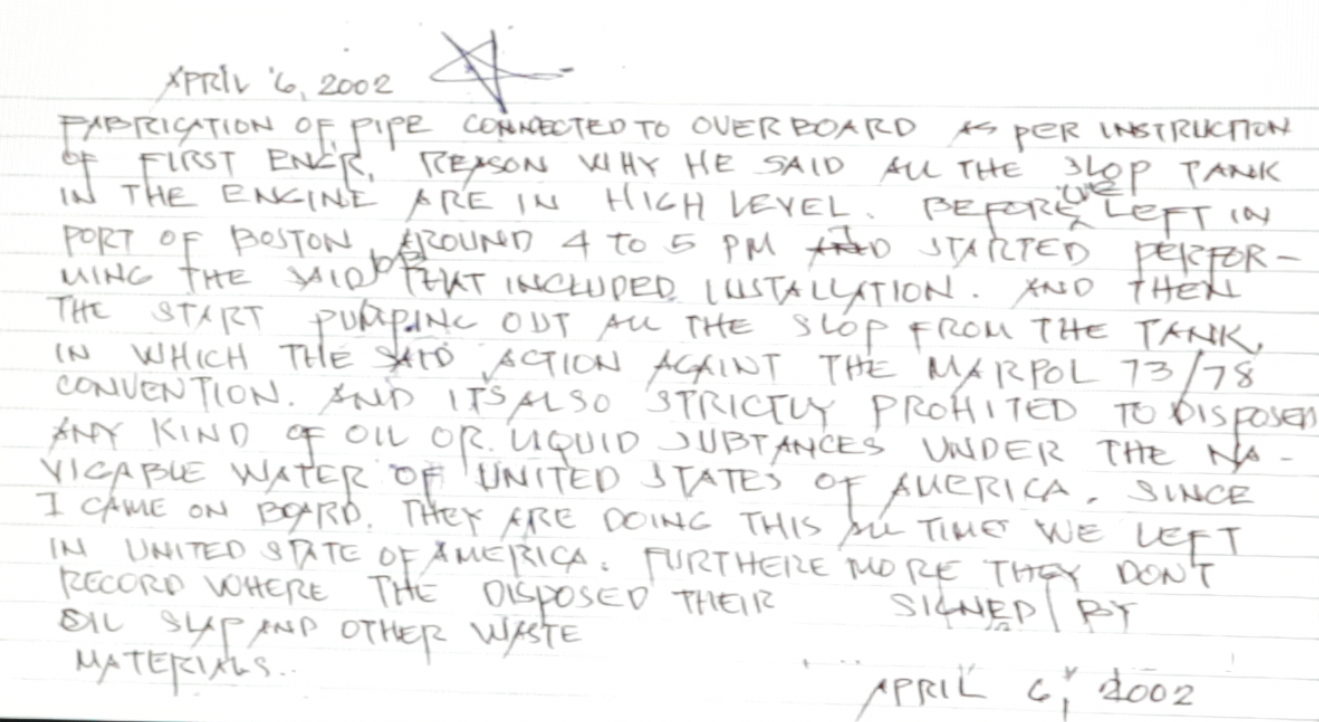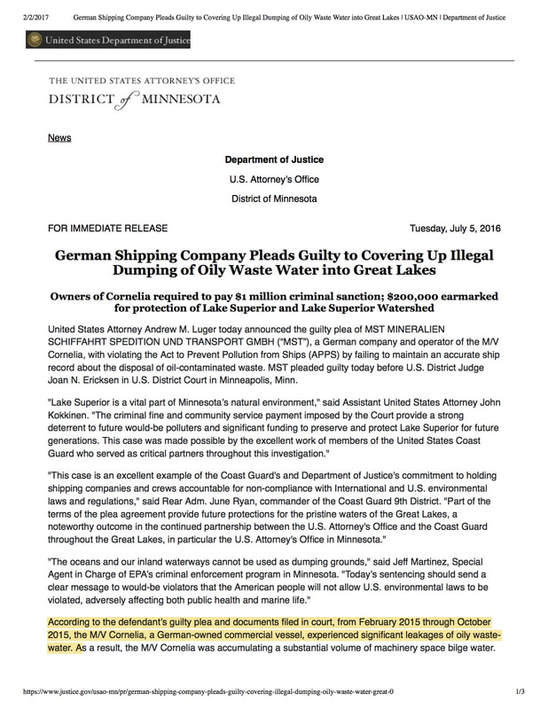Whistleblowers in the Engine Department of the cargo ship Iorana passed a note to the US Coast Guard when their ship arrived in Baltimore, Maryland.
The note reported that the ship’s chief engineer had directed the dumping of waste oil overboard through a bypass hose that circumvented pollution prevention equipment required by law. “We are asking help to any authorities concerned about this, because we must protect our environment and our marine lives," they wrote.
During a Coast Guard inspection trigged by the note, the whistleblowers also passed along photographs taken on a crew member’s cell phone showing the use of a 103-foot long “magic hose” to bypass the ship’s oily water separator.
The illicit bypass system used to discharge oily waste, including sludge, was routed through the ship’s boiler blow down system where any trace of oil could be expected to be steam cleaned away. The illegal discharges were concealed in a fraudulent oil record book, a required log in which all overboard discharges are to be recorded.
Irika Shipping S.A., the owner of the Greek flagged cargo ship Iorana, pleaded guilty on July 8, 2010, and agreed to pay a $4 million dollar fine.
The four crew members that notified authorities were awarded $125,000 each under the Act to Prevent Pollution from Ships which provides that whistleblowers may receive an award of up to one-half of fines collected under that statute.


